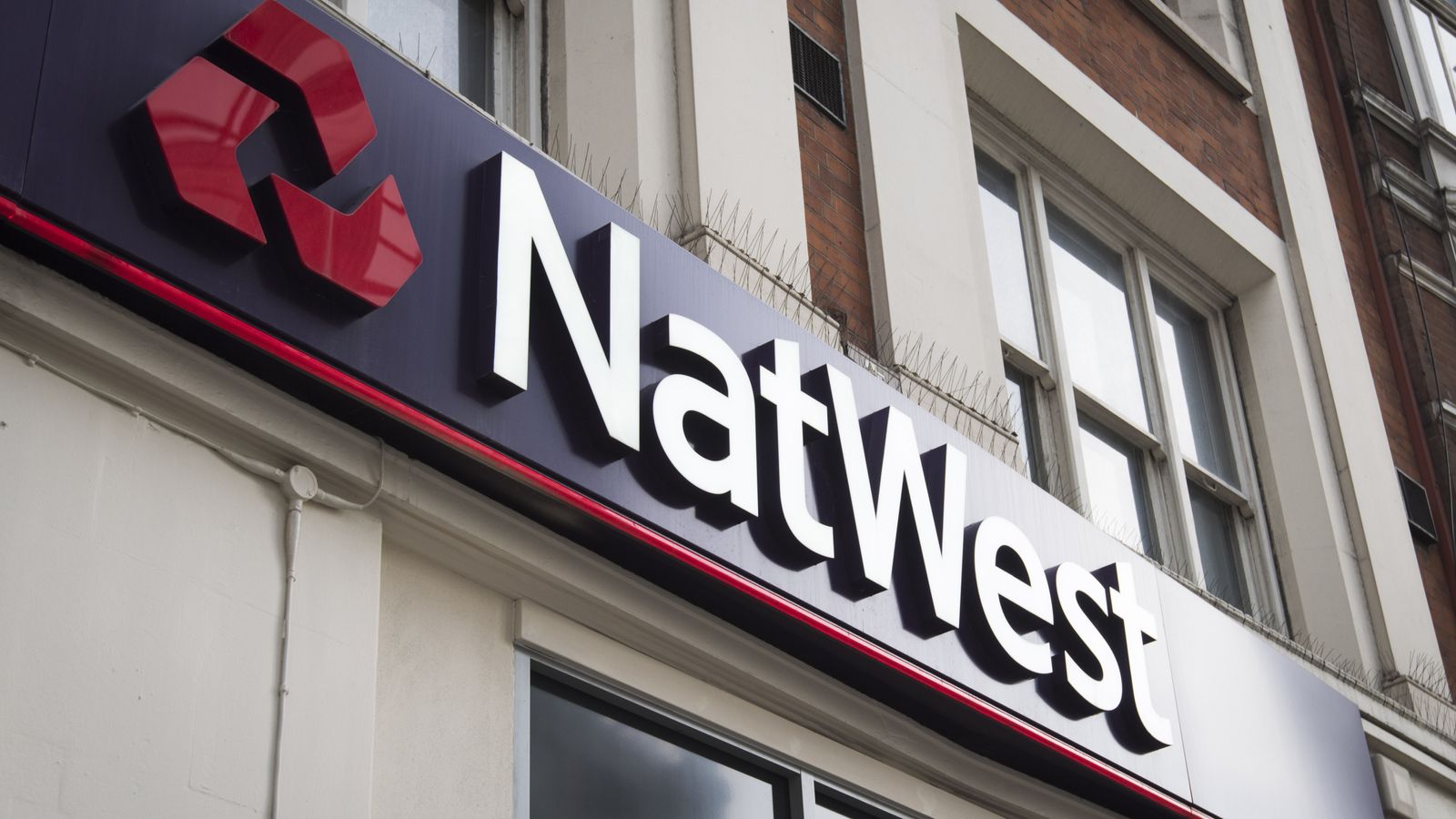By Sarah Taaffe-Maguire, Business reporter @taaffems
The independent review into the closure of Nigel Farage’s Coutts account and the discussion of his banking with a journalist by the head of the bank has found “a number of shortcomings” in the closure process.
But law firm Travers Smith, who were commissioned by the board of NatWest to conduct the review, said the closure of Mr Farage‘s account, “was predominantly a commercial decision”.
“Coutts considered its relationship with Mr Farage to be commercially unviable because it was significantly loss-making.”
In response to the key findings of the report, NatWest chairman, Sir Howard Davies, said “a number of serious failings” were set out in the treatment of Mr Farage.
Shortcomings were also identified in how NatWest, which owns Coutts, communicated with the former UKIP and Brexit Party leader and how it treated his confidential information, according to the review.
The finance watchdog, the Financial Conduct Authority (FCA) said potential “regulatory breaches and a number of areas for improvement” were identified.
These include NatWest’s processes on how it considers potential accounts closures and customers complaints as well as the effectiveness of governance mechanisms.
Former chief executive, Dame Alison Rose, exited the state-backed lender after she admitted making a “serious error of judgment” by speaking to a journalist about Farage’s banking at Coutts.
After the news piece was published Mr Farage released the content of a subject access request, which suggested the move was taken partly because his views did not align with the firm’s “values”.
Key findings by Travers Smith are:
• The decision to close the account was lawful and was made in accordance with bank policies and processes.
• Dame Alison Rose played no part in the decision to close the account.
• Other factors were considered in the decision-making process: Coutts thought there could be reputational harm from Mr Farage holding an account these factors did not drive the decision.
• Mr Farage’s stated beliefs were not a determining factor in closing the account but they did support the decision.
• The way the closure was communicated to Mr Farage was broke the bank’s policies and processes, especially by giving reasons to customers when non-financial crime was committed. No adequate reasons were given.
In response, Mr Farage has said:
• “The report’s authors claim it was “predominantly a commercial decision” to close my accounts but, crucially, they also noted that evidence given to them by witnesses in relation to this episode was not entirely consistent.”
• “Travers Smith has taken a very mealy-mouthed approach to this complex issue. The law firm argues that my political views “not aligning with those of the bank” was not in itself a political decision. This is laughable.”
• “Travers Smith did not find “any evidence” that my “pro-Brexit stance were factors in the exit decision”. The word Brexit appeared no less than 86 times in my subject access request”.
• “The letters that were sent to me confirming the closures of my accounts without explanation were sent on a paper headed template usually reserved for those suspected of fraud”.

Robert Johnson is a UK-based business writer specializing in finance and entrepreneurship. With an eye for market trends and a keen interest in the corporate world, he offers readers valuable insights into business developments.








